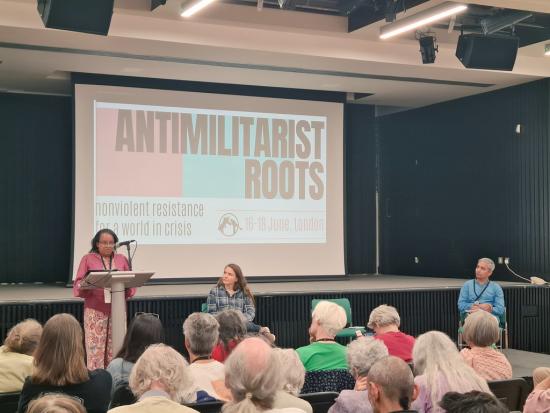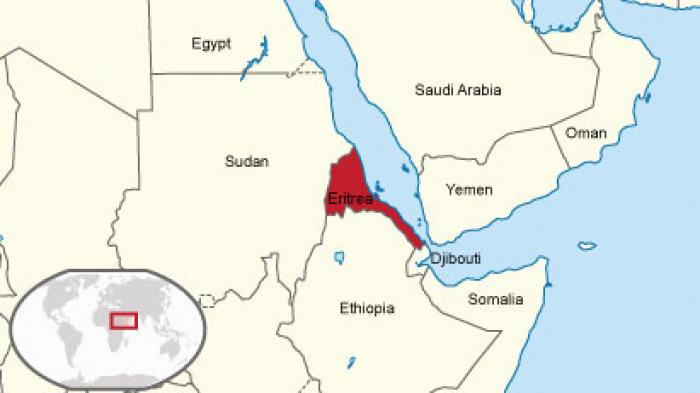
[Lying on the Red Sea coast in North East Africa,] Eritrea is a former Italian colony, and it was federated to Ethiopia after Italy lost the Second World War to allied forces. Haile Selassie [emperor of Ethiopia from 1930 – 1974] broke the agreement by forcing Eritrea to be annexed. Therefore, in 1961, the 30-year war for independence broke out, this became the longest conflict in Africa.
Eritrea and Eritreans were isolated during the war of independence and the outlook of Eritreans as a result became more inward-looking as people focused on their survival.

As the war of independence intensified and the atrocities on the Eritrean people started to mount, civil society started operating under the fronts with the aim of working together in order to channel all the efforts in one direction.
This was the biggest folly and in essence is one of the reasons why Eritrea found itself in the mess that it did after independence.
Post-Independence
The first few years after independence, Eritrea was doing fairly well and working towards recovering from the devastation of the 30-year war for independence. Independent press started to open and a lot of Eritreans in the diaspora returned to help rebuild the country.
Independence held so much promise and the Eritrean people were focused on rebuilding their lives and nation. In 1994, the Eritrean government started conscription and, to begin with, the Eritrean people didn’t really take much notice, because in essence most people thought it was their duty.
In 2001, members of the G-15 [a dissident group of Eritrean military and political leaders including ministers in the government] wrote a letter to the Eritrean president, Isaias Afwerki, stating that power should be passed to the Eritrean people. As the border conflict [with Ethiopia] ignited in 1998, the G-15 insistence on the transition of power led the Eritrean government to denounce them as traitors. Many were arrested among them and a couple managed to leave the country.
Many at the time did not question the government or its motive and just took it at face value.
This signalled a message to the government that it could do what it wanted and there was no comeback to it.
These were the early signs of the downward trend and brutality that was to follow. The writing was on the wall for the kind of militarism that the Eritrean government was pursuing; it was obvious for those who read the signs.
During the 1998 border conflict, many Eritreans at home and abroad joined the Eritrean army voluntarily. Many, after the war for independence, felt it was their duty to defend their country and people which came at a very high cost.
Every Eritrean family felt this cost as they had someone who joined the Eritrean fronts, the Eritrean Liberation Front or Eritrean People’s Liberation Front, and fought in the war of independence, died there or were themselves in the liberation movements.
Indefinite National Service
Therefore, this lays the foundation for the indefinite national service which has been likened to slavery as per the report of the UN commission of inquiry report 2015.
It is important to understand militarism in the Eritrean context and the process that created a society that had internalised and in which militarism had become a part of its culture.
Eritrea was a nation with a long history of conflict, and we can take this from starting with the Second World War, this in itself created a survivalist culture. As mentioned, this survivalist culture led to having someone in every family contribute as fighters to either the EPLF or the ELF.
As a result, the Eritrean people mobilised in supporting the liberation fronts at home and aboard and Eritrean fighters were seen as martyrs and saviours of the Eritrean people.
Eritreans both at home and aboard played their part in the struggle for an independent Eritrea.
In much the same way, the government that was formed post-independence used the same rhetoric that had been used during the war for independence. The government knew very well that the sovereignty of Eritrea was something that Eritreans would not gamble with and hence used it to its advantage in understanding the psychology of the Eritrean people.
The conflict [with Ethiopia] that started in 1998 dashed people’s hopes and Eritrea was now caught in another conflict. Whilst the conflict finished with the signing of the Algiers Agreement in 2000, Eritrea was left in a no-win, no-peace situation for 20 years, this predicament meant that Eritrean youth were left on the border with Tigray. [Tigray is a region of Ethiopia on Eritrea’s southern border. It is ruled by the Tigrayan People’s Liberation Front (TPLF) which governed Ethiopia from 1991 – 2018. The 1998 – 2000 border war was over territory that Eritrea claimed but that Ethiopia saw as part of Tigray].
As many Eritrean youth were left stranded for all this time, it meant that the government forcibly made them stay against their will as people grew weary and many also started to question the motive of the Eritrean government.
Unfortunately, as there wasn’t a strong civil society, there was no real body that could question the government.
The growing independent press in Eritrea used its voice to question the method and motive of the government. In its part, the Eritrean government in 2001 either arrested them and for the few remaining they fled Eritrea. Tragically, it is not known whether those arrested are dead or alive.
As there was also no strong civil society outside in the diaspora, they could not fulfil the gap in strengthening Eritrean people inside the country.
This became the start of the indefinite national service, as the government feared the TPLF coming into Eritrea and garnered all its strength in ‘protecting the country’ or so it said.
The situation of Eritrean youth being conscripted meant that they were in no position to question the government and the regime ensured that they were unable to topple the government.
What was becoming strikingly obvious was that we had managed to win the war but not the peace. Peace took a different road and a different culture, but since Eritreans had not known peace since the Second World War, when the Italians conscripted Eritreans, therefore no one questioned it now.
It became obvious to Eritreans in the diaspora that this was not the Eritrea that people had died for and something had gone really wrong.
Therefore, we began to see many independent civil society organisations set up outside of Eritrea. Many suffered from infiltration by the government as it tried to keep a lid on things.
There were also political parties that were set up in the diaspora and they themselves were created by veterans hence carried the baggage of the past unable to create a viable alternative.
Whilst Eritreans and civil society organisations faced many challenges, nevertheless they continue to thrive and continue to play a pivotal role in informing and creating a culture of dialogue.
The Tigray conflict [2020 – 2022], however, created division amongst the Eritrean opposition including civil society organisations. [PN adds: An Ethiopian government military campaign against Tigray began in November 2020. It may have killed over half a million people in the Tigray region alone. Eritrean government forces are reported to have taken part in Ethiopia’s brutal assault from the beginning.]
This has been detrimental but despite those challenges a lot of great work has also been accomplished. EMDHR [Eritrean Movement for Democracy and Human Rights] worked with five organisations over the past two-and-a-half years. The work that was conducted included the establishment of safe houses for Eritrean refugees to a school in Sudan and Egypt for Eritrean refugees, lobbying at the UN and other international fora and networking and forging new relationships with civil society organisations and other entities.
EMDHR had commissioned a policy brief which has now been completed and this will provide a way forward for unifying Eritrean civil society in the diaspora, pushing for civil society space in Eritrea and creating a framework of how Eritrean civil society can play a stabilisation role after the regime collapses in Eritrea.
This has already received support from some African civil society organisations, who are committed to the growth of Eritrean civil society organisations.
During the war for independence the Eritrean fighters had a saying. Translated in English, it means: ‘Our struggle is long but our victory is certain’. On that note, I can say that failure for us is not an option, and we will win and create a viable nation at peace with itself, neighbours and a future for Eritrean youth.
Tomorrow, Mulueberhan Temelso, director of the Foundation Human Rights for Eritrea, and I will be holding a workshop and we can explore further some of the points raised in my presentation today. Thank you for listening.

